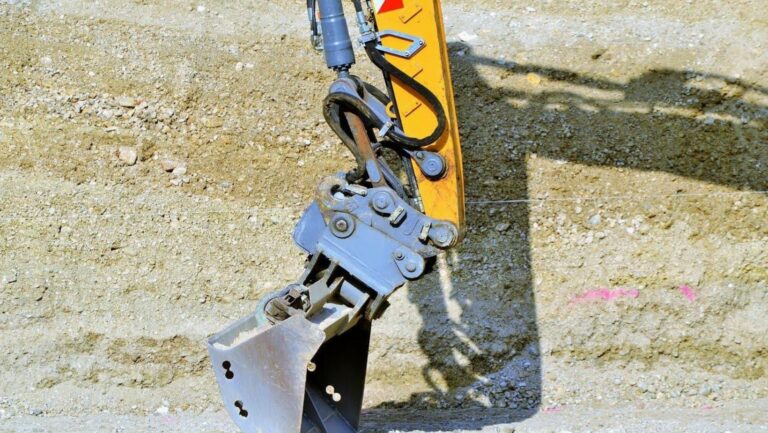Managing tenants might seem as easy as pie, but anyone who’s tried knows it’s more like juggling flaming swords while riding a unicycle. Those skills aren’t just handy; they’re essential for keeping the peace and ensuring everyone’s happy—especially when rent is due.
Table of Contents
ToggleUnderstanding Tenant Management Skills
Tenant management skills encompass a range of abilities essential for maintaining positive relationships between property managers and tenants. Proper management fosters a harmonious living environment, enhances tenant satisfaction, and promotes effective communication during challenging situations.
Importance of Effective Tenant Management
Effective tenant management significantly affects tenant retention rates. Satisfied tenants tend to stay longer, reducing vacancy costs. Building trust through consistent communication creates a positive atmosphere that encourages open dialogue about issues. Prompt response to maintenance requests and concerns demonstrates commitment to tenant well-being. Strong management skills further help mitigate disputes, enabling timely conflict resolution. Ultimately, prioritizing tenant needs correlates with property success.
Key Responsibilities of a Property Manager
Property managers hold numerous responsibilities that directly impact tenant experiences. They oversee property maintenance, ensuring all facilities remain functional and appealing. Collecting rent efficiently forms another core duty, requiring clear communication and timely reminders. Managers must also handle tenant screening to find suitable renters, which includes checking references and conducting background checks. Enforcing lease agreements requires diligence, as rules must apply uniformly to maintain fairness. A proactive approach to tenant relations facilitates smooth operations and fosters long-term occupancy.
Essential Skills for Tenant Management

Effective tenant management relies on various essential skills that enhance relationships and streamline operations.
Communication Skills
Strong communication skills play a crucial role in tenant management. Professionals must convey policies clearly, ensuring tenants understand their rights and responsibilities. Listening actively to tenant concerns fosters trust and builds rapport. Regular updates regarding property issues or changes help maintain transparency. Verbal and written communication should remain professional and courteous. Diplomacy in addressing conflicts often prevents problems from escalating. Using multiple channels, like email, phone, and face-to-face interactions, caters to tenant preferences, enhancing engagement.
Problem-Solving Skills
Problem-solving skills are indispensable for property managers. Encountering unexpected challenges, such as maintenance emergencies or tenant disputes, demands quick thinking and effective resolution strategies. Evaluating issues from different angles allows for more comprehensive solutions. Staff should prioritize finding a resolution that suits both the tenant’s needs and the property’s interests. Utilizing resources and expertise efficiently often leads to faster outcomes. Demonstrating a proactive approach reinforces tenant satisfaction and loyalty. Anticipating potential issues and addressing them before they escalate illustrates strong management capabilities.
Techniques for Improving Tenant Management Skills
Improving tenant management skills involves various strategies that enhance relationships and efficiency. Focused training and development opportunities play a crucial role in honing these skills.
Training and Development
Training sessions foster essential competencies in effective tenant management. Workshops on communication and conflict resolution provide practical insights. Regular seminars can address emerging issues in tenant relations. Mentorship programs often connect experienced managers with those new to the field, promoting knowledge sharing. Property managers benefit from legal education on tenant rights and fair housing regulations, ensuring compliance with laws. Continuous skill development fosters a proactive approach to tenant management, leading to improved relationships.
Use of Technology in Tenant Management
Technology improves the efficiency of tenant management significantly. Property management software streamlines rent collection, maintenance requests, and tenant communications. This software can automate reminders for rent due dates, enhancing timely payments. Online portals often facilitate seamless communication between tenants and managers, keeping everything organized. Data analytics tools provide insights into tenant satisfaction and behavior trends, helping managers make informed decisions. Utilizing technology not only simplifies processes but also enhances the tenant experience, leading to higher retention rates.
Common Challenges in Tenant Management
Tenant management presents various challenges that require skill and adaptability. Difficult tenants can increase strain on property managers, making effective handling crucial for maintaining a positive environment.
Dealing with Difficult Tenants
Addressing difficult tenants involves effective communication and patience. Property managers encounter issues ranging from late rent payments to noise complaints. Understanding tenant perspectives assists in navigating these concerns, as active listening fosters trust. Conflict resolution strategies, including clear guidelines on expected behaviors and consequences, prevent escalation. Documenting interactions helps create a record that can resolve misunderstandings. Additionally, maintaining a calm demeanor during discussions reassures tenants and encourages cooperation. Adapting strategies based on each situation leads to more successful outcomes.
Maintaining Tenant Satisfaction
Satisfaction among tenants directly impacts retention rates. Regular check-ins through surveys or informal conversations provide valuable insights into tenant needs. Quick responses to maintenance requests showcase a commitment to their well-being and help build rapport. Creating community events encourages engagement while fostering a sense of belonging. Transparent communication regarding lease terms or property changes minimizes confusion and promotes trust. Recognizing and addressing tenant concerns promptly enhances the overall living experience. Staying proactive in these areas shows dedication to maintaining a harmonious atmosphere.
Mastering tenant management skills is essential for property managers aiming to create a positive living environment. Effective communication and problem-solving abilities not only enhance tenant satisfaction but also contribute to higher retention rates. By prioritizing tenant well-being and utilizing technology for streamlined processes, property managers can foster trust and cooperation.
Investing in training and development ensures that managers are equipped to handle challenges while maintaining harmonious relationships. Ultimately, a proactive approach to tenant management leads to a thriving community where both tenants and property managers can succeed together.



